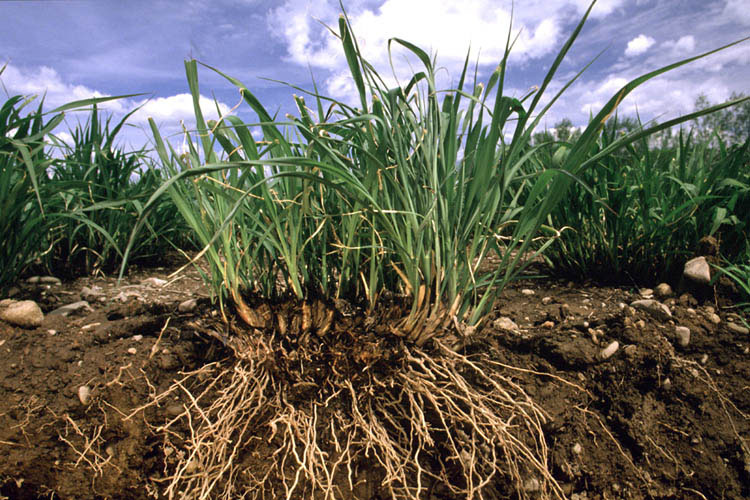Root Ecology
You are here

Root Ecology
To be announced
Scope
Roots play a crucial role in plant life and ecosystem functions, anchoring plants in soil, acquiring nutrient and water and creating habitats for root-associated microbes. Given the array of challenges plants and ecosystems are confronted with, e.g. climate change, soil degradation and nutrient imbalances, the question is what role roots can play in tackling these challenges for plant life and the ecosystems they grow in. For one whether root phenotypic plasticity can counter environmental challenges as drought, water logging or increased climatic variability.
Significant research has been done on plant responses to changes in the environment, in which an important role for roots has been recognized. However, given the complexity of belowground dynamics and measurement thereof, understanding root functioning remains challenging. Recent novel technologies and methodologies may hereby give support in finding insight and solutions to the challenges mentioned. Moreover, there is increased understanding of roots in natural ecosystems and how this insight can help making our crops more resource efficient, while work on below-ground resource efficiency in agricultural ecosystems enriches ecological theories. Effectively coupling studies of root responses to the environment at various spatial and temporal scales would give promising impact towards addressing the role of roots in current and future, climate-changed, natural and agricultural ecosystems. These questions need to be addressed given the essence roots play in the production of food for man and the herbivorous life on earth.
The central scope of this course will be the fundamental concepts of root ecology, with a focus on root interactions with the abiotic and biotic environment. Specific topics will include:
- Root architecture and soil resource acquisition
- Root interactions with soil microorganisms
- Root phenotyping
- Root anatomy and soil resource acquisition
- Methods and technology in Root research
Course Set-up

The course is composed of a series of lectures, discussions sessions, working group activities, hands-on data analyses, excursions to root research sites, and a final course debate of a case study.
1. Key-note / Introduction Lecture
The course starts off Sunday afternoon with an introduction to the course, followed by a key-note address in which the invited speaker will give an overview is of the current state of knowledge on roots and provoke the discussion with challenging statements.
2. Poster Carousel
After the Sunday dinner there will be a poster carousel in which participants introduce themselves via a poster. Each round lasts 15 minutes (5 minutes introduction and 10 minutes questions and discussion). Prior to the course, participants must submit a poster in PDF, which will be printed by the course office (A1-size). The poster must contain your name and affiliation, title and short description of your research project with one highlight (something exciting) and the reason why you want to participate in this course. Posters will remain in the lecture room throughout the course.
3. Lectures and Discussion
Each day will start off with a set of 3 lectures. After each lecture (30 minutes) a discussion of 30 minutes is held in which participants challenge the speaker on the presentation and a paper that the speaker submitted a-priori.
4. Working groups
Afternoons working groups (5-6 participants per group) will envision future developments in root research in the context of root interactions (and in the framework of interactions of root ecologists who work in natural and agricultural ecosystems). In these sessions, groups should focus on the cutting edge issue in the field chosen by the group. Besides addressing conceptual frameworks, groups must address which experimental design, methods, models and analysis are appropriate to address the issue. At the end of the course (Friday morning) groups will present the output of their work.
5. Methodology carousel
During the methodology carousel participants will be introduced to a set of novel methods and techniques in root research. This will be done via 3 1 hour sessions in which 5 demonstrations are given that participants select beforehand.
Speakers
TBD
General information
| Target Group | The course is aimed at PhD candidates and other academics |
| Group Size | Min. 20, max. 40 participants |
| Course duration | 5 days |
| Language of instruction | English |
| Frequency of recurrence | Every three years |
| Number of credits | 1.5 ECTS |
| Lecturers | See above |
| Prior knowledge | Basic knowledge of root ecology is assumed |
| Location | Hotel De Bosrand, Ede |
More information
Claudius van de Vijver (PE&RC)
Phone: +31 (0) 317 485116
Email: claudius.vandevijver@wur.nl
Miriam van Heist (PE&RC)
Phone: +31 (0) 628521546
Email: miriam.vanheist@wur.nl
Registration of interest
At this moment, this course is not scheduled yet. However, if you register your interest in this activity below, we will inform you as soon as the course is scheduled and registration of participation is opened.
